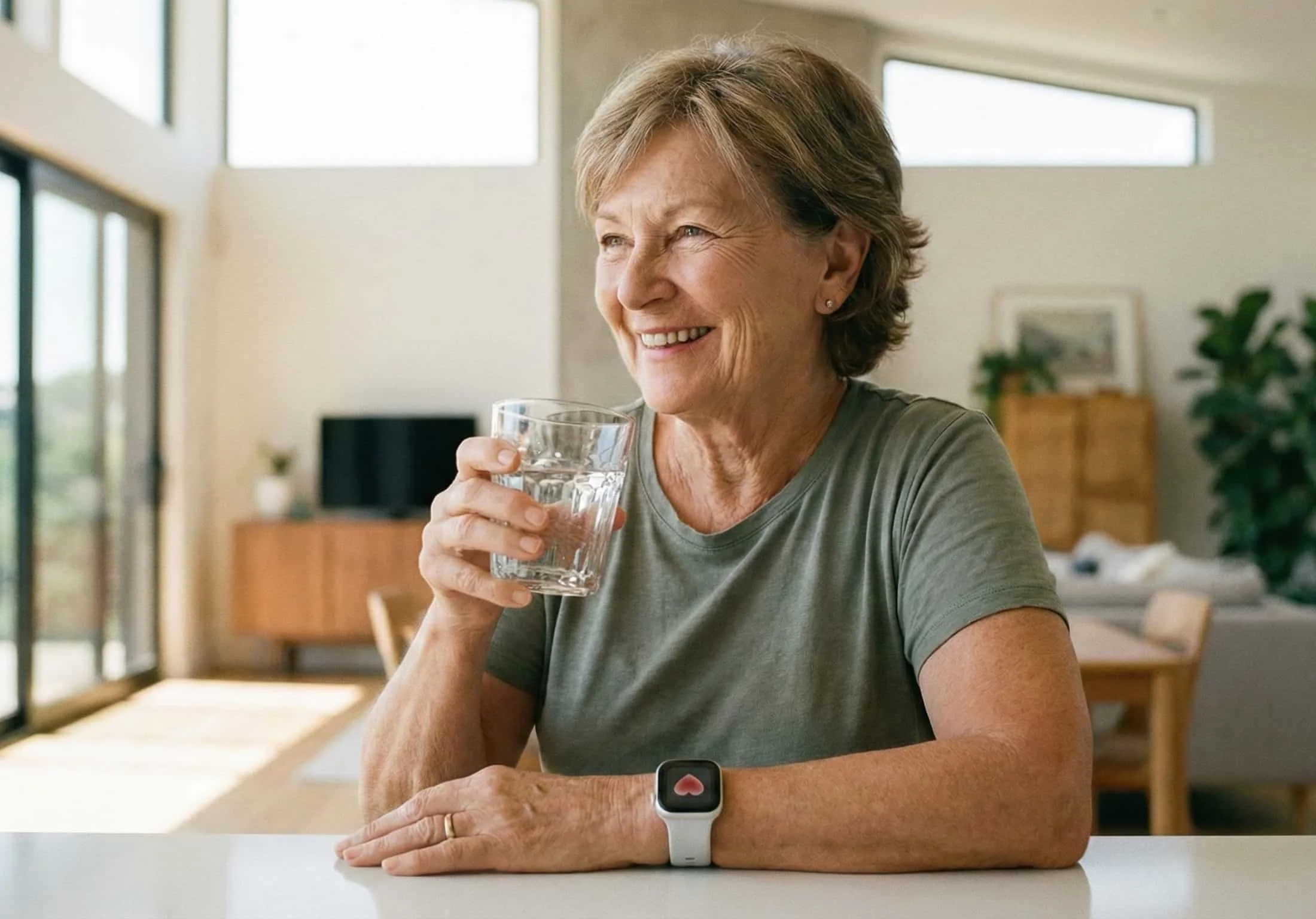Maintaining Dignity During Personal Care Assistance
Maintaining human dignity during personal care assistance (PCA) isn’t a “soft skill.” It’s a moral obligation, a legal requirement, and a direct determinant of health outcomes.
The Omnibus Budget Reconciliation Act (OBRA ’87) and CMS regulations guarantee every resident’s right to a dignified existence, autonomy, and respect within long-term care. The July 2025 CMS Appendix PP revision clearly states that residents have the right to make choices about their schedules, care methods, and environment.
In practice, dignity is often compromised by staff shortages, rigid institutional schedules, and lack of training in respectful care. These failures are not trivial: loss of dignity leads to anxiety, distrust, and lower quality of life. Research on dignity therapy shows measurable improvements in emotional well-being and patient adjustment in long-term and palliative settings.
Understanding Dignity in Care
Seeing the Person, Not the Procedure
Dignity means recognizing each individual as a person with a unique story, beliefs, and preferences — not just a “patient.” It lives in the small things: explaining every step, asking before acting, closing the curtain, covering the body, speaking respectfully.
When Dignity Is Violated
According to CMS, delaying toileting help, discussing personal health in public areas, or using infantilizing language (“sweetie,” “baby”) are direct dignity violations. Such behavior strips individuals of autonomy and self-worth.
Autonomy and the Right to Choose
How Autonomy Protects Dignity
Autonomy is how dignity takes form in everyday care. Patients must have the right to decide when and how care tasks are performed — whether to bathe now or later, take a shower or bath, wear certain clothes, or rest at specific times. Even small choices signal respect and control.
When Routine Overrides Humanity
Institutional routines — “bath time at 6 PM for everyone” — may seem efficient but erase individuality. Perfect technique means little if the person feels invisible. Real care prioritizes the person, not the schedule.
The Clinical Dimension: Why Respect Impacts Health
The loss of dignity isn’t only emotional; it’s physiological. Studies link dignity erosion to depression, loss of motivation, and non-adherence to treatment. Conversely, compassionate, dignity-conserving care improves well-being, satisfaction, and even recovery rates.
Practical Protocols for Dignified Care
Privacy and Modesty
Before entering a room — knock and wait for permission.
Keep doors and curtains closed during personal tasks.
When transporting a resident, cover them with a robe or blanket.
Visible catheter bags or uncovered transfers are considered demeaning under CMS standards.
Bathing and Grooming
Offer choices: bath or shower, morning or evening. Explain each step and monitor comfort. For those with dementia, maintain calm surroundings, familiar caregivers, and slow, reassuring gestures. These actions reduce distress and preserve self-respect.
Practical Example — FUNC Therapy
In West Hollywood, FUNC Therapy combines physical and occupational therapy to help individuals regain movement and confidence after injury or surgery. Each home visit centers around the person — their pace, pain level, and personal recovery goals. This approach strengthens physical ability while reinforcing self-sufficiency — the foundation of dignity in care.Toileting and Incontinence Care
Timeliness is essential. Delaying help when a person requests toileting is demeaning and dangerous.
Use respectful terminology — “brief,” “liner,” or “protective underwear,” never “diaper.”
Ensure comfort, hygiene, and safety; wet surfaces must be cleaned immediately. These details prevent both infection and humiliation.
Systemic Challenges in Upholding Dignity
Organizational Barriers
According to CDC reports, chronic understaffing, excessive workloads, and weak leadership communication lead to neglect of basic human needs. When CNAs are overextended, residents wait longer for help, autonomy disappears, and dignity erodes.
Cultural and Structural Problems
Rigid procedures, overreliance on electronic records, and performance metrics that value speed over empathy depersonalize care. In such environments, residents feel like “tasks” rather than people.
Building a Culture of Respect
Training and Skill Development
Respectful care requires systemic education:
Communication skills — clear, calm explanations.
Bias awareness — addressing ageism and ableism.
Person-Centered Care (PCC) — flexibility in routines, honoring personal preferences.
Human-Centered Design — starting with the human experience, not the institutional rulebook.
Organizational Commitment
Dignity should be a measurable outcome, not an optional value.
Leaders must staff adequately, design flexible schedules, and model empathy. When caregivers are supported, respect naturally follows.
Home and Hospice: Extending Dignity Beyond Facilities
The Role of Home-Based Care
Many PCA services happen at home, where the same principles apply: privacy, autonomy, and safety.
The CDC identifies elder neglect and abuse as major public health challenges — underscoring the need for training and systems that empower both caregivers and families.
Practical Example — RW Family Practice and Preventive Care
In Orlando, RW Family Practice and Preventive Care integrates family medicine, prevention, and IV therapy through home visits. Physicians create care plans collaboratively with patients, providing support without disrupting comfort or privacy. This proactive model helps individuals maintain control over their health while receiving medical attention in their own space — preserving dignity as a lived experience.Policy and Leadership Recommendations
Mandatory dignity-focused training for all healthcare and support staff.
Funding tied to dignity indicators — autonomy, timely assistance, personalized scheduling.
Zero tolerance for demeaning practices — enforceable through CMS audits and state penalties.
Support for family caregivers — training and emotional resources to prevent burnout and neglect.
Ethical staffing models — workloads aligned with real human needs, not financial efficiency.
Conclusion
Dignity lives in everyday gestures — asking before acting, speaking with respect, providing privacy, and offering choice.
It’s not extra compassion; it’s the essence of ethical care.
When individuals retain control and self-respect, PCA becomes a partnership rather than dependency. That shift — from procedure to relationship — is where healthcare transforms from mechanical to genuinely human.
FAQ
Where is the main body of the essay or argument?
The main body of the essay begins after the introduction and continues through the sections that explain the ethical, legal, and clinical principles of maintaining dignity during personal care assistance (PCA). It includes subsections on autonomy, privacy, bathing, toileting, systemic challenges, and organizational reform — all forming the core argument supported by real-life and regulatory examples.
What is the central thesis or claim of the text?
The central thesis is that preserving human dignity in personal care assistance is not optional — it is an ethical mandate, a legal right under U.S. law, and a key determinant of health outcomes. True dignity in care means respecting autonomy, maintaining privacy, and involving individuals in decisions about their daily life and body.
What evidence or examples support the main points?
The essay uses several layers of evidence:
Legal frameworks: OBRA ’87 and CMS regulations establishing dignity and self-determination as protected resident rights.
Ethical standards: The American Nurses Association Code of Ethics and CNA/HHA guidelines emphasizing respect, autonomy, and cultural sensitivity.
Clinical research: Studies from the CDC and NIH showing that loss of dignity correlates with depression, anxiety, and poorer recovery outcomes.
Practical examples: FUNC Therapy in West Hollywood and RW Family Practice and Preventive Care in Orlando, both demonstrating how person-centered, home-based care reinforces patient dignity and independence.
You May Also Like





